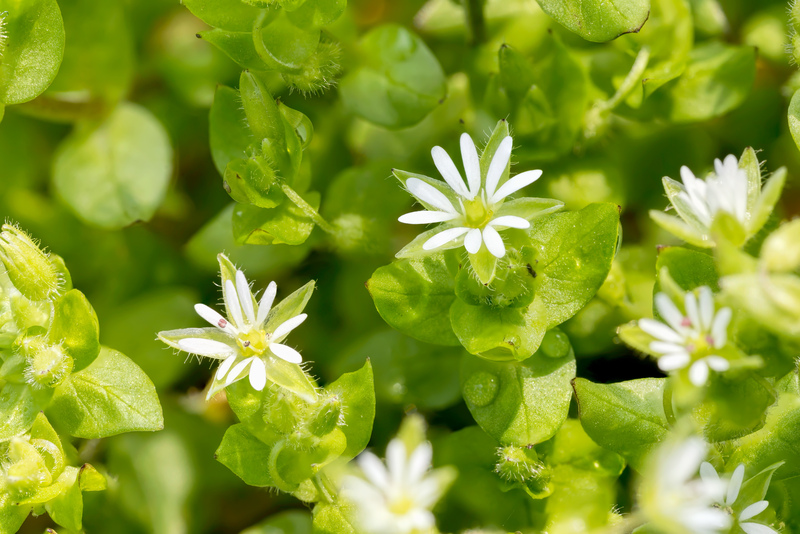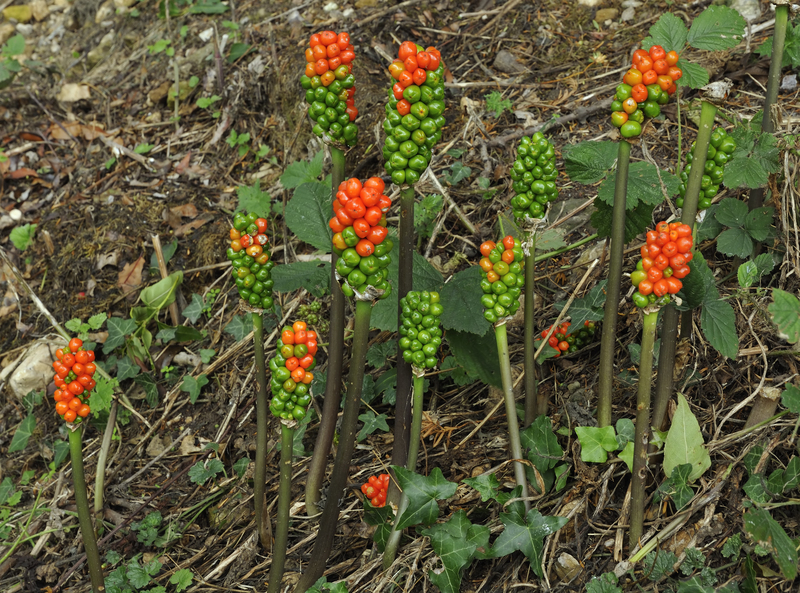Elevate Your Cooking with Fresh Homegrown Herbs
Posted on 25/06/2025
Elevate Your Cooking with Fresh Homegrown Herbs
Imagine stepping into your kitchen, grabbing a handful of aromatic basil, or snipping fresh thyme right from your countertop garden. Growing your own herbs brings unparalleled flavor, nutrition, and satisfaction to every meal. Discover how fresh homegrown herbs can transform your culinary experiences and elevate your cooking to new heights.
Why Grow Fresh Homegrown Herbs?
The benefits of growing your own herbs at home extend beyond simple convenience. Whether you have a sprawling backyard or a sunny windowsill, cultivating herbs offers:
- Superior flavor compared to dried or store-bought herbs
- Access to organic, pesticide-free ingredients
- Significant cost savings over time
- Enhanced nutritional value in your meals
- Year-round kitchen garden pleasure
- The satisfaction of harvesting ingredients you've grown yourself

How Fresh Herbs Elevate Your Cooking
Freshly picked herbs offer complex aromas and vibrant flavors that dried variants simply can't match.
Intensifying Flavors and Aromas
A small handful of homegrown basil can bring an Italian classic like Caprese salad to life. Cilantro brightens salsas and curries, while fresh rosemary adds depth to roasted potatoes or chicken. Each herb, when harvested at its peak, packs a powerful punch.
Increasing Nutritional Value
Did you know that fresh herbs are rich in antioxidants, vitamins, and minerals? Snipping fresh parsley over your favorite dish doesn't just add color — it infuses your meal with additional vitamin C, vitamin K, and folate.
Creative Culinary Inspiration
An abundance of fresh herbs encourages you to experiment with new recipes and flavor combinations. You might find yourself making homemade pesto, herb-infused oils, or unique spice blends you never considered before.
Getting Started: Growing Your Own Herb Garden
Choosing the Right Location
Herbs thrive with plenty of sunlight. The best locations include:
- A south-facing windowsill
- Balconies or patios
- Dedicated herb beds in your yard
Aim for at least 6 hours of sunlight daily for most culinary herbs.
Selecting the Best Herbs to Grow at Home
Some herbs are particularly well suited for home gardening and can be grown year-round indoors or seasonally outside:
- Basil: Perfect for pesto and Italian dishes
- Parsley: Adds a fresh finish to soups, salads, and more
- Chives: Mild onion flavor, great for eggs and potatoes
- Rosemary: Ideal with roasted vegetables and meats
- Thyme: Versatile and hardy for numerous dishes
- Oregano: Essential for Mediterranean flavor profiles
- Cilantro: Wonderful in salsas and ethnic dishes
- Mint: Refreshing in teas, desserts, and salads
Growing Herbs Indoors vs. Outdoors
Indoor herb gardens require containers with good drainage, a sunny spot, and regular watering. Outdoor herbs often thrive in beds or raised planters. Consider starting herbs indoors from seeds or seedlings before transplanting outside in warmer months.
Best Practices for Thriving Homegrown Herbs
Soil and Watering Tips
- Use well-draining potting mix or garden soil
- Water consistently, but avoid overwatering — most herbs dislike "wet feet"
- Add a layer of mulch for outdoor beds to conserve moisture and minimize weeds
Pruning and Harvesting for Maximum Flavor
Regularly harvesting and pruning your herbs promotes bushy, healthy growth.
- Pinch off flower buds to prolong the harvesting season
- Snip stems just above a set of leaves to encourage branching
Dealing with Pests and Diseases Naturally
Homegrown herbs are typically low maintenance, but occasional pests can appear. Encourage beneficial insects, use organic pest control methods, and inspect plants often. Neem oil and soapy water sprays can help deter aphids and mites.
How to Use Fresh Homegrown Herbs in Everyday Cooking
Finishing Touches That Wow
Sprinkling freshly chopped herbs over a finished dish instantly adds vibrancy and aroma. Favorites include:
- Chopped basil over pasta
- Fresh cilantro on tacos or pho soup
- Rosemary and thyme for roasted vegetables or meat dishes
- Mint leaves in summer salads or cocktails
Simple Sauces and Spreads
- Homemade pesto: Basil, parsley, or cilantro as the base
- Herb butters: Mix soft butter with minced chives, parsley, and dill
- Chimichurri and salsa verde: Great with grilled meats or vegetables
Infused Oils and Vinegars
Add depth to your dressings and marinades by infusing olive oil or vinegar with freshly picked rosemary, thyme, or basil. Store in the refrigerator and use within a couple of weeks for best flavor.
Herb-Based Beverages and Teas
Muddle mint, lemon balm, or basil into lemonade, cocktails, or iced teas for a refreshing twist.
Pro Tips to Maximize the Use of Your Homegrown Herbs
- Harvest early in the morning when essential oils are at their peak
- Use sharp scissors or garden shears to prevent damaging stems
- Wash herbs gently and pat dry before using
- Freeze or dry excess herbs to preserve for future use
- Label herb containers – some varieties look similar
Preserving Homegrown Herbs for Year-Round Flavor
Freezing
Chop herbs and freeze in ice cube trays with olive oil or water. Pop a cube into soups and stews for a burst of summer flavor even in the depths of winter.
Drying
Hang small bunches upside down in a cool, dark, and well-ventilated place. Once dry, crumble and store in airtight containers. Note: dried herbs have a different potency, so adjust quantities when cooking.
Making Herb Pastes and Pestos
Blend fresh herbs with oil, nuts, and cheese for longer-lasting spreads. Store in the fridge for up to a week or freeze for several months.
Common Questions about Growing and Cooking with Fresh Herbs
Can I grow herbs without a garden?
Absolutely! Many fresh culinary herbs thrive in containers on a windowsill or balcony.
How often should I water my herbs?
Most herbs prefer to dry slightly between waterings. Stick your finger in the soil — if it's dry an inch below the surface, it's time to water.
What's the best way to store freshly picked herbs?
For short-term storage, wrap herbs in a {slightly damp} paper towel and keep them in a resealable bag in the refrigerator. For longer storage, try freezing or drying, as described above.
My herbs are flowering. Should I be worried?
Herbs like basil and cilantro can become bitter when they flower ("bolt"). Regularly pinching off flower buds keeps your plants leafy and flavorful.
Can I use stems as well as leaves?
Most tender herb stems (parsley, cilantro, basil) are edible and add flavor. Woody stems (rosemary, thyme) can be used for infusions but are best removed before serving.

Inspirational Recipes Showcasing Homegrown Herbs
Classic Basil Pesto
- 2 cups fresh basil leaves
- 1/2 cup grated Parmesan cheese
- 1/2 cup olive oil
- 1/3 cup pine nuts (or walnuts)
- 2 garlic cloves, peeled
- Salt and pepper
Combine all ingredients in a food processor and blend until smooth. Toss with pasta, spread over sandwiches, or swirl into soups.
Simple Salsa Verde
- 1 cup chopped parsley
- 2 tablespoons capers
- Zest and juice of 1 lemon
- 1 garlic clove
- 1/2 cup olive oil
- Salt and pepper
Blitz all ingredients together. Perfect drizzled over roasted vegetables or grilled fish.
Herby Roasted Chicken
- 1 whole chicken or 4 chicken thighs
- 2 tablespoons chopped rosemary
- 1 tablespoon thyme leaves
- 1 tablespoon olive oil
- Salt and pepper
Rub the chicken with oil, herbs, salt, and pepper. Roast until golden and juicy for a truly spectacular meal.
Conclusion: Start Elevating Your Cooking with Fresh Homegrown Herbs Today!
Whether you're a beginner or a seasoned home chef, growing herbs at home offers a simple way to enhance your culinary creations. With little space and minimal effort, you'll enjoy unbeatable flavors, vibrant colors, and healthful nutrients in every bite. Start your own indoor herb garden or dedicate a corner of your yard to kitchen herbs — your taste buds (and your guests) will thank you!
Don't wait—take the first step towards fresher, more flavorful meals by cultivating your own homegrown herbs. Elevate your cooking, one snip at a time!
Latest Posts
Creating Gardens with Heart: Perfecting the Seating
Achieve Garden Elegance with Creative Hedge Techniques
Envelop Your UK Garden in Charm with 9 Ground Cover Plants

